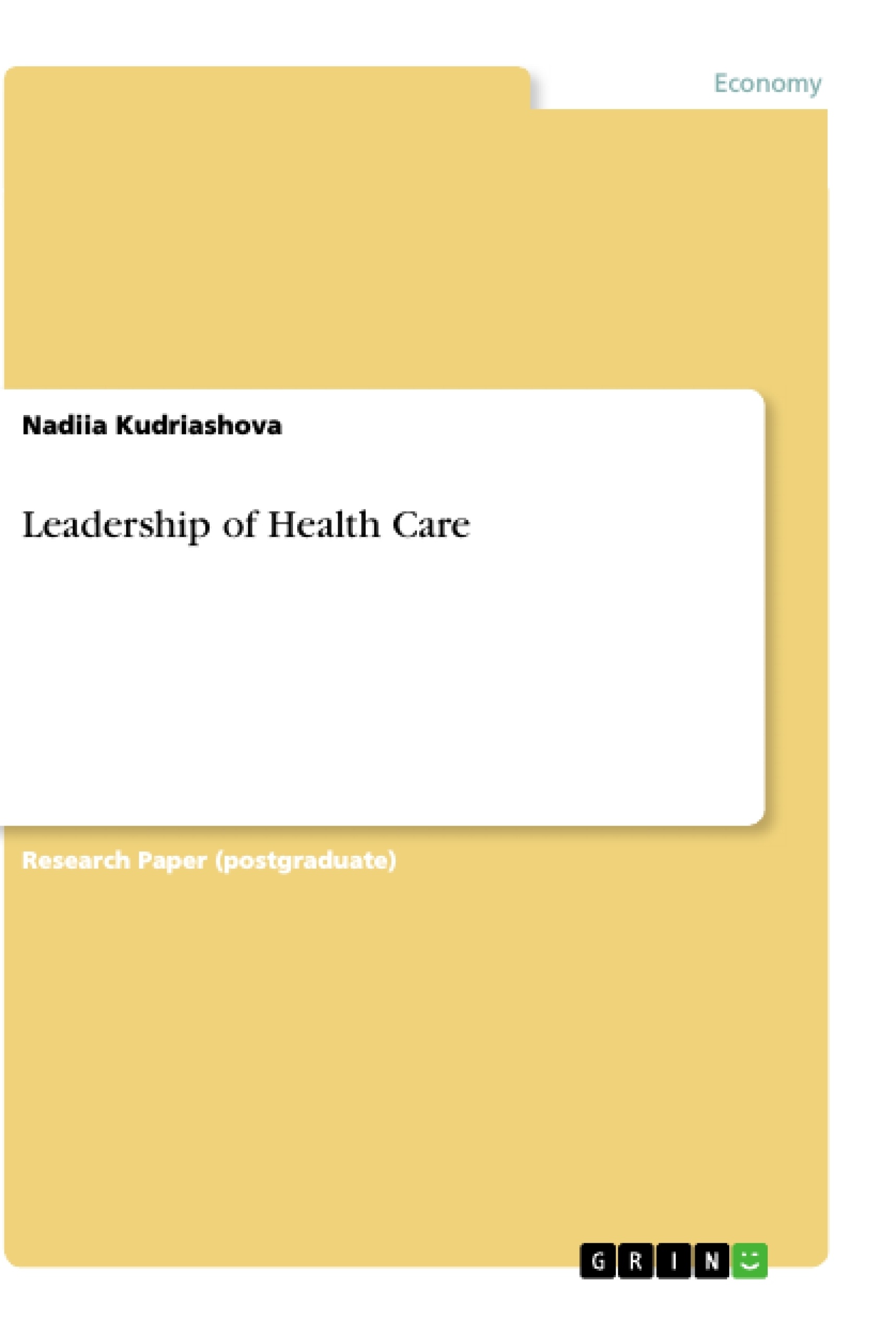In modern high-tech healthcare, human resources have a heterogeneous structure. They cover a wide range of specialists doctors, medical workers (nurses, midwives, rehabilitologists, laboratory assistants, etc.), psychologists, social workers, programmers, lawyers, teachers, economists, etc. To achieve effective human resources management when working with personnel in the health care organization, leaders and managers must implement a broad team approach. If the members of a team join forces and focus on expressing their real potential, minimizing shortcomings, the team’s goals will be successfully achieved. The consolidation and integrity of individual team members is key to the success of the organization. Often medical organizations with fewer employees achieve better results than those with a large number of medical specialists.
Inhaltsverzeichnis (Table of Contents)
- Chapter 1. Modern Implications of Health Care Leadership
- Chapter 2. Leader or Administrator: Opposition or Convergence?
- Middle East context
- Chapter 3. Distributed Leadership in Healthcare
- Chapter 4. Leadership Competencies for Healthcare
- Chapter 5. Healthcare Leaders' Skills in Change Management
- Chapter 6. Leadership under the Conditions of Turbulence in Healthcare
Zielsetzung und Themenschwerpunkte (Objectives and Key Themes)
This work aims to explore the complex relationship between leadership and administration in healthcare organizations, particularly in the context of the Middle East. It delves into the crucial role of leadership in navigating modern healthcare challenges, including the need for change management, the development of leadership competencies, and the importance of a team-based approach.
- The multifaceted nature of leadership in healthcare
- The importance of leadership competencies and skills for effective healthcare management
- The impact of change management on healthcare leadership
- The role of leadership in navigating the challenges of a turbulent healthcare landscape
- The specific context of leadership in the Middle East healthcare system
Zusammenfassung der Kapitel (Chapter Summaries)
Chapter 1 examines the modern implications of healthcare leadership in a high-tech environment. It discusses the importance of teamwork, the need for specific leadership skills, and the role of leaders in addressing the challenges of reforming national health systems. Chapter 2 delves into the complex relationship between leadership and administration in healthcare, highlighting the crucial skills required for effective management. It also examines the specific context of leadership in the Middle East, exploring the challenges and opportunities unique to the region.
Schlüsselwörter (Keywords)
Key terms and concepts explored in this work include healthcare leadership, management competencies, change management, distributed leadership, healthcare organization, Middle East context, strategic thinking, teamwork, and human resource management.
- Quote paper
- Nadiia Kudriashova (Author), 2020, Leadership of Health Care, Munich, GRIN Verlag, https://www.grin.com/document/903195



